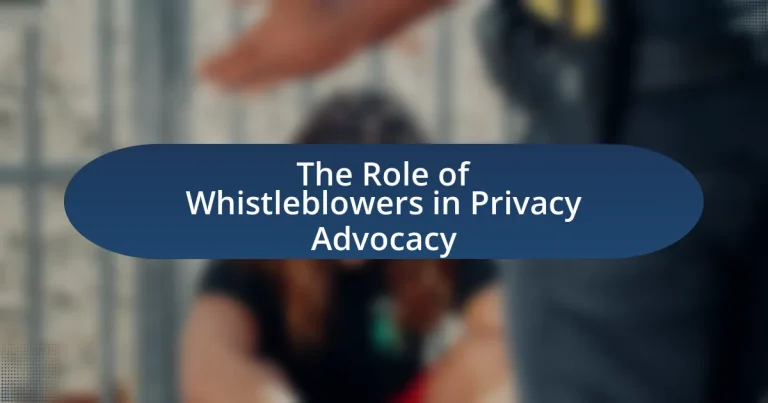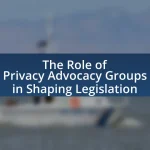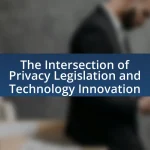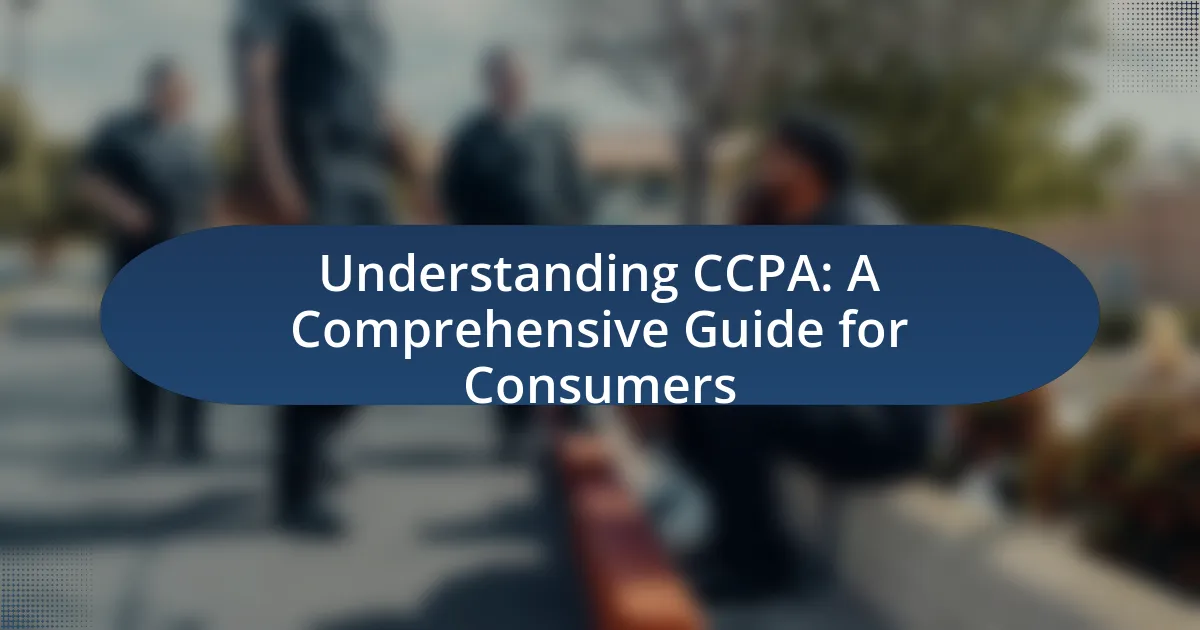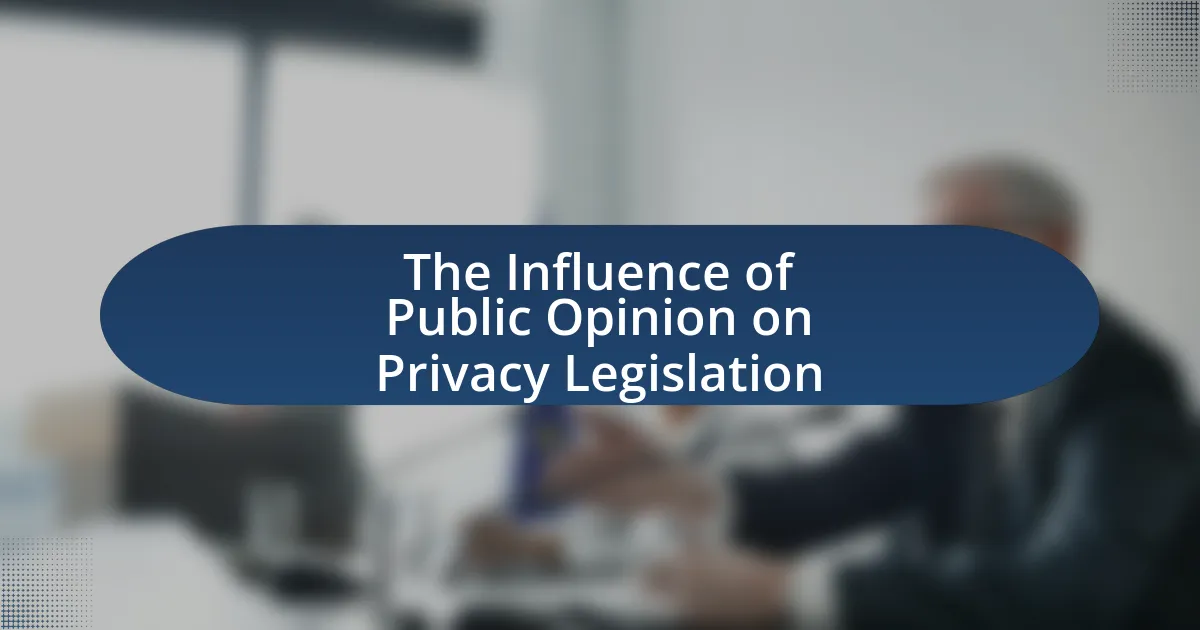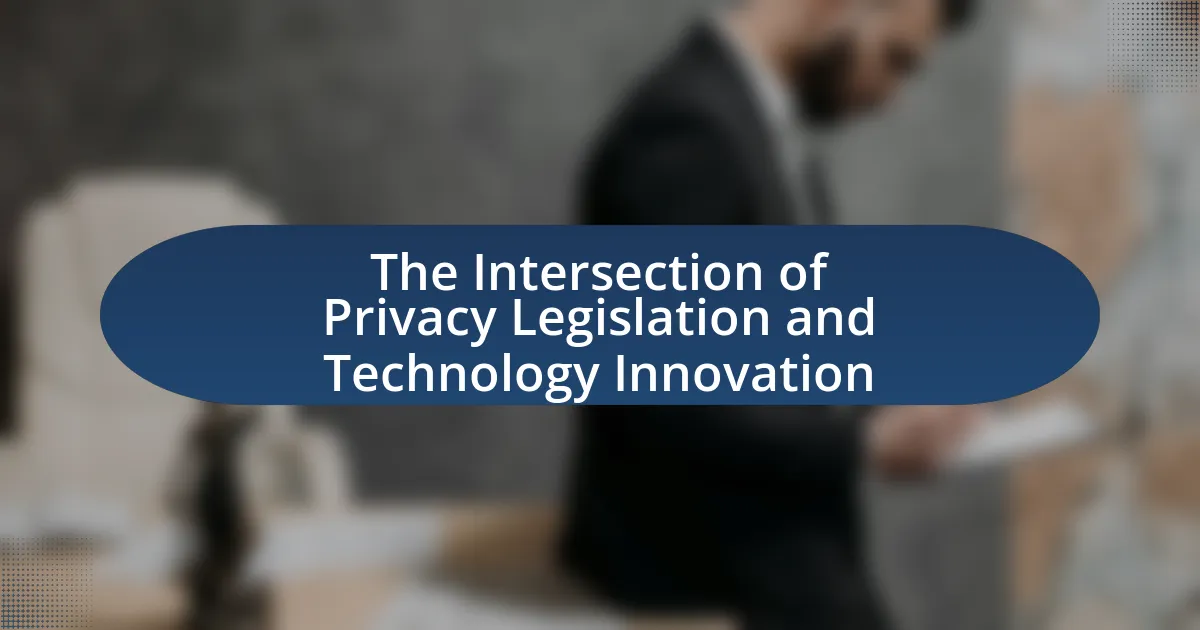Whistleblowers are individuals who expose violations of privacy rights and unethical practices within organizations, playing a vital role in privacy advocacy. Their disclosures often reveal critical information about data breaches, surveillance activities, and misuse of personal information, prompting public awareness and regulatory scrutiny. The article examines how whistleblowers contribute to privacy protection, the specific actions they take to expose violations, the risks they face, and the impact of their disclosures on legislation and public perception. It also discusses the challenges whistleblowers encounter, the legal protections available to them, and the future trends in whistleblowing and privacy advocacy.
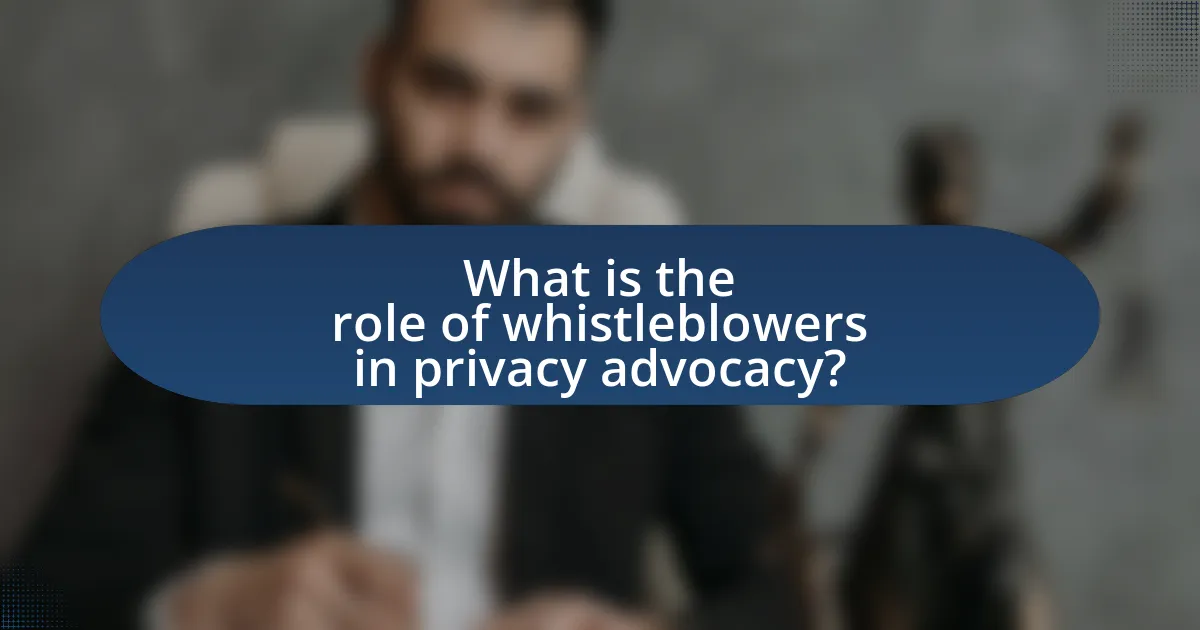
What is the role of whistleblowers in privacy advocacy?
Whistleblowers play a crucial role in privacy advocacy by exposing violations of privacy rights and unethical practices within organizations. Their disclosures often reveal critical information about data breaches, surveillance activities, or misuse of personal information, prompting public awareness and regulatory scrutiny. For instance, Edward Snowden’s revelations about the NSA’s mass surveillance programs significantly influenced global discussions on privacy and government overreach, leading to reforms in privacy laws and increased advocacy for individual rights. Such actions by whistleblowers not only protect the public interest but also encourage transparency and accountability in both public and private sectors.
How do whistleblowers contribute to privacy protection?
Whistleblowers contribute to privacy protection by exposing violations of privacy laws and unethical practices within organizations. Their disclosures often reveal misuse of personal data, unauthorized surveillance, or inadequate data protection measures, prompting regulatory investigations and reforms. For instance, the revelations by Edward Snowden about the National Security Agency’s mass surveillance programs led to significant public discourse and legislative changes regarding privacy rights and government surveillance practices. Such actions not only hold organizations accountable but also raise awareness about the importance of safeguarding individual privacy, thereby fostering a culture of compliance and ethical behavior in data handling.
What specific actions do whistleblowers take to expose privacy violations?
Whistleblowers take specific actions such as reporting violations to regulatory authorities, leaking confidential information to the media, and providing evidence to support claims of privacy breaches. These actions are aimed at bringing attention to unlawful practices and ensuring accountability. For instance, whistleblower Edward Snowden disclosed classified information about the NSA’s mass surveillance programs, which highlighted significant privacy violations and sparked global debates on privacy rights. Such disclosures often lead to investigations and reforms in privacy policies, demonstrating the critical role of whistleblowers in advocating for privacy protection.
How do whistleblowers influence public awareness of privacy issues?
Whistleblowers significantly influence public awareness of privacy issues by exposing unethical practices and violations of privacy laws within organizations. Their disclosures often reveal critical information about surveillance, data breaches, and misuse of personal data, prompting public discourse and legislative scrutiny. For instance, Edward Snowden’s revelations about the NSA’s mass surveillance programs in 2013 led to widespread public debate about privacy rights and government overreach, resulting in policy changes and increased advocacy for privacy protections. Such actions by whistleblowers serve to inform the public, mobilize advocacy groups, and encourage legislative reforms aimed at safeguarding individual privacy rights.
Why are whistleblowers essential in the context of privacy advocacy?
Whistleblowers are essential in the context of privacy advocacy because they expose violations of privacy rights and unethical practices within organizations. By revealing information about data breaches, surveillance abuses, or misuse of personal information, whistleblowers play a critical role in holding entities accountable and promoting transparency. For instance, Edward Snowden’s disclosure of the NSA’s mass surveillance programs in 2013 highlighted significant privacy concerns and sparked global debates about government overreach and individual rights. Such actions not only inform the public but also drive legislative changes aimed at enhancing privacy protections.
What risks do whistleblowers face when advocating for privacy?
Whistleblowers advocating for privacy face significant risks, including retaliation, legal consequences, and personal safety threats. Retaliation can manifest as job loss, harassment, or professional ostracism, as seen in cases like Edward Snowden, who faced exile after exposing NSA surveillance practices. Legal consequences may involve lawsuits or criminal charges, as whistleblowers often violate confidentiality agreements or laws, which can lead to severe penalties. Additionally, personal safety threats can arise from exposing powerful entities, leading to fears of intimidation or violence. These risks highlight the precarious position of whistleblowers in the realm of privacy advocacy.
How do whistleblowers impact legislation related to privacy rights?
Whistleblowers significantly impact legislation related to privacy rights by exposing violations and prompting legislative reforms. For instance, the revelations by Edward Snowden regarding the National Security Agency’s surveillance practices led to increased public awareness and the introduction of the USA Freedom Act in 2015, which aimed to limit government surveillance and enhance privacy protections. This demonstrates how whistleblower disclosures can catalyze legislative changes that strengthen privacy rights and hold entities accountable for breaches.

What challenges do whistleblowers encounter in privacy advocacy?
Whistleblowers in privacy advocacy face significant challenges, including retaliation, legal repercussions, and social stigma. Retaliation can manifest as job loss, harassment, or threats, which discourages individuals from coming forward with information. Legal repercussions arise from potential breaches of confidentiality agreements or laws, creating a fear of prosecution. Social stigma can lead to isolation and damage to personal relationships, as whistleblowers may be viewed negatively by peers or the public. These challenges are supported by studies indicating that a substantial percentage of whistleblowers experience adverse consequences, with reports showing that nearly 75% face retaliation in some form after reporting misconduct.
How does retaliation affect whistleblowers in the privacy sector?
Retaliation significantly impacts whistleblowers in the privacy sector by creating a hostile environment that discourages reporting unethical practices. This retaliation can manifest as job loss, harassment, or legal action, which not only affects the whistleblower’s career but also their mental and emotional well-being. Research indicates that approximately 60% of whistleblowers experience retaliation, leading to a chilling effect where potential whistleblowers may choose to remain silent rather than risk their livelihoods. This dynamic undermines the integrity of privacy advocacy, as it prevents the exposure of misconduct that could harm individuals’ privacy rights.
What legal protections exist for whistleblowers in privacy advocacy?
Whistleblowers in privacy advocacy are protected by various legal frameworks, including the Whistleblower Protection Act in the United States, which safeguards individuals who report violations of laws or regulations related to privacy. This act prohibits retaliation against whistleblowers, ensuring they can disclose information about privacy breaches without fear of losing their jobs or facing other forms of discrimination. Additionally, many states have their own whistleblower protection laws that further reinforce these protections, often extending to privacy-related disclosures. These legal safeguards are crucial for encouraging individuals to come forward with information that can help uphold privacy rights and promote accountability in organizations.
How can organizations support whistleblowers to mitigate risks?
Organizations can support whistleblowers to mitigate risks by implementing robust whistleblower protection policies and providing secure reporting channels. These measures ensure that individuals can report misconduct without fear of retaliation, which is crucial for fostering an environment of transparency. Research indicates that organizations with strong whistleblower protections experience a 50% reduction in incidents of misconduct, as employees feel safer to report unethical behavior. Additionally, training programs that educate employees about the importance of whistleblowing and the processes involved can further enhance the effectiveness of these protections.
What role does public perception play in the effectiveness of whistleblowers?
Public perception significantly influences the effectiveness of whistleblowers by shaping the response to their disclosures and determining the level of support they receive. When the public views whistleblowers positively, they are more likely to rally behind them, leading to increased pressure on organizations to address the issues raised. For instance, the public’s favorable perception of whistleblowers like Edward Snowden has sparked widespread debate on privacy rights and government surveillance, demonstrating how public sentiment can amplify the impact of whistleblowing actions. Conversely, negative public perception can lead to isolation and retaliation against whistleblowers, undermining their efforts and discouraging others from coming forward. Thus, the alignment of public perception with the whistleblower’s cause is crucial for maximizing their effectiveness in advocating for privacy and accountability.
How can media coverage influence the actions of whistleblowers?
Media coverage can significantly influence the actions of whistleblowers by providing a platform for their disclosures and protecting them from retaliation. When whistleblowers see their concerns reported in the media, it can validate their experiences and encourage them to come forward, knowing that public attention may safeguard them from potential backlash. For instance, the exposure of Edward Snowden’s revelations about NSA surveillance led to widespread public discourse and legal reforms, demonstrating how media attention can empower whistleblowers and amplify their impact. Additionally, media coverage can create a supportive environment, as seen in cases like the exposure of corporate fraud, where journalists play a crucial role in bringing whistleblower accounts to light, thus fostering a culture of accountability.
What strategies can whistleblowers use to gain public support?
Whistleblowers can gain public support by effectively communicating their message through various strategies. These strategies include leveraging social media platforms to reach a wider audience, engaging with advocacy groups that align with their cause, and providing clear, documented evidence of wrongdoing to establish credibility. For instance, the case of Edward Snowden demonstrated how social media amplified his revelations about government surveillance, garnering significant public attention and support. Additionally, whistleblowers can participate in public forums or interviews to articulate their experiences and the implications of their disclosures, further enhancing public awareness and empathy towards their situation.
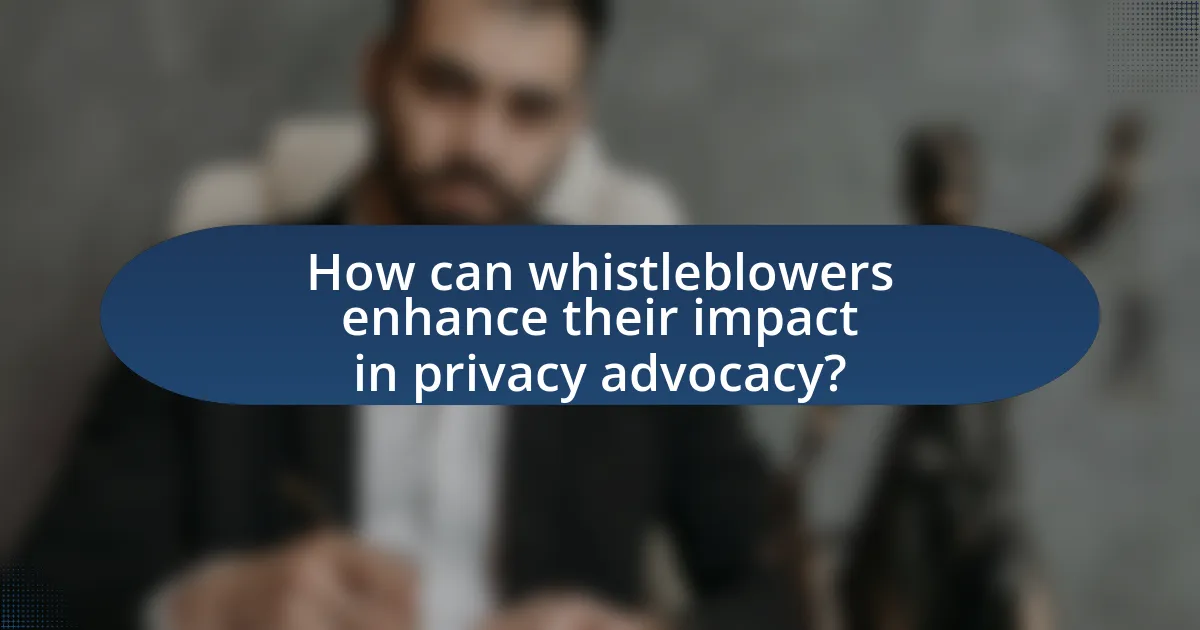
How can whistleblowers enhance their impact in privacy advocacy?
Whistleblowers can enhance their impact in privacy advocacy by exposing unethical practices and violations of privacy laws within organizations. By providing credible evidence of misconduct, whistleblowers can catalyze public awareness and prompt regulatory investigations, leading to stronger enforcement of privacy protections. For instance, the revelations by Edward Snowden about NSA surveillance practices significantly influenced public discourse on privacy rights and led to legislative changes, such as the USA Freedom Act. This demonstrates that whistleblowers play a crucial role in holding entities accountable and fostering a culture of transparency in privacy advocacy.
What best practices should whistleblowers follow when reporting privacy violations?
Whistleblowers should document all relevant evidence before reporting privacy violations. This includes gathering emails, documents, and any other materials that substantiate the claim. Additionally, they should familiarize themselves with the organization’s reporting procedures and relevant laws, such as the Whistleblower Protection Act, which safeguards individuals from retaliation. Whistleblowers must also consider reporting through secure channels to protect their identity and ensure confidentiality. Engaging legal counsel can provide guidance on the process and help navigate potential repercussions. Following these best practices enhances the credibility of the report and protects the whistleblower’s rights.
How can whistleblowers effectively document their findings?
Whistleblowers can effectively document their findings by maintaining detailed records of incidents, including dates, times, locations, and the individuals involved. This thorough documentation should also encompass any relevant communications, such as emails or memos, that support their claims. Additionally, whistleblowers should gather corroborating evidence, such as photographs, videos, or official documents, to substantiate their allegations. Research indicates that comprehensive documentation increases the credibility of whistleblower reports, as seen in cases like the 2016 Wells Fargo scandal, where detailed records played a crucial role in the investigation. By following these practices, whistleblowers enhance the likelihood of their findings being taken seriously and acted upon.
What resources are available for whistleblowers seeking guidance?
Whistleblowers seeking guidance can access various resources, including legal aid organizations, government agencies, and non-profit groups dedicated to whistleblower protection. Organizations such as the Government Accountability Project provide legal advice and support for whistleblowers, while the Occupational Safety and Health Administration (OSHA) offers resources related to workplace safety whistleblowing. Additionally, the National Whistleblower Center provides educational materials and advocacy for whistleblower rights. These resources are crucial for individuals navigating the complexities of reporting misconduct while ensuring their protection under the law.
What are the future trends in whistleblowing and privacy advocacy?
Future trends in whistleblowing and privacy advocacy include increased legal protections for whistleblowers, the rise of anonymous reporting platforms, and a growing emphasis on corporate transparency. Legal frameworks are evolving to provide stronger safeguards against retaliation, as seen in recent legislative efforts in various countries aimed at enhancing whistleblower protections. Additionally, technology is facilitating anonymous reporting, allowing individuals to disclose wrongdoing without fear of exposure, which is evidenced by the proliferation of secure whistleblowing apps and platforms. Furthermore, organizations are increasingly recognizing the importance of transparency in building trust with stakeholders, leading to more proactive measures in privacy advocacy and compliance with data protection regulations.
How might technology change the landscape for whistleblowers?
Technology may significantly enhance the landscape for whistleblowers by providing secure communication channels and anonymity. Encrypted messaging apps and secure reporting platforms, such as Signal and SecureDrop, allow whistleblowers to share sensitive information without fear of exposure. According to a 2020 study by the Whistleblower Protection Program, the use of technology has increased the number of reports filed by whistleblowers by 30% over the past five years, demonstrating its effectiveness in facilitating disclosures. Additionally, advancements in blockchain technology can create immutable records of reports, further protecting whistleblowers from retaliation and ensuring accountability.
What emerging issues in privacy advocacy could benefit from whistleblower involvement?
Emerging issues in privacy advocacy that could benefit from whistleblower involvement include data breaches, surveillance practices, and the misuse of personal information by corporations and governments. Whistleblowers can provide critical insider information that exposes unethical practices, such as unauthorized data collection or inadequate data protection measures. For instance, the Cambridge Analytica scandal revealed how personal data was exploited without consent, highlighting the need for transparency and accountability in data handling. Additionally, whistleblower disclosures can lead to stronger regulatory frameworks and reforms aimed at protecting individual privacy rights, as seen in the aftermath of Edward Snowden’s revelations about mass surveillance programs.
What practical steps can individuals take to support whistleblowers in privacy advocacy?
Individuals can support whistleblowers in privacy advocacy by providing legal assistance, emotional support, and promoting their cause through awareness campaigns. Legal assistance is crucial as it helps whistleblowers navigate complex legal frameworks and protects them from retaliation; for instance, organizations like the Government Accountability Project offer resources and legal counsel specifically for whistleblowers. Emotional support can be provided through community groups or networks that understand the challenges faced by whistleblowers, fostering a sense of solidarity. Additionally, individuals can raise awareness about privacy issues and the importance of whistleblowing by sharing information on social media, participating in advocacy events, or engaging with local representatives to influence policy changes that protect whistleblowers. These actions collectively contribute to a safer environment for whistleblowers and enhance the overall effectiveness of privacy advocacy.
